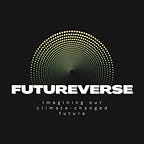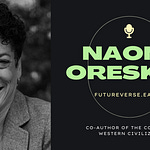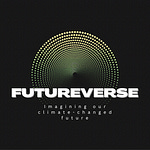In this episode of Futureverse, Molly Wood and Ramanan Raghavendran interview Edan Lepucki about her works of climate fiction, including her novel California and her short story "There's No Place Like Home."
Their discussion probes the intersections of climate fiction, personal relationships, and societal dynamics in a changing world. From fears of societal regression to the intricacies of world-building, Lepucki shares how climate change informs her narratives, seamlessly weaving environmental concerns into the fabric of her character-driven stories and challenges readers to confront the fragility of progress and the complexity of human nature amidst a backdrop of environmental catastrophes.
The full transcript is available by clicking above. This episode is also available on Apple Podcasts and Spotify.
Highlights
(02:45) Reimagining Dystopian Fiction in the Face of Climate Change
(07:10) Flawed Characters and the Myth of Apocalyptic Survival
(14:22) Imagining Apocalyptic Worlds Through Sensory Experiences
(16:06) Exploring Bleak Worlds as a Cathartic Writing Experience
(21:16) Secrets, Storytelling, and Climate Change Challenges
(26:29) Edan’s Literary Inspiration













